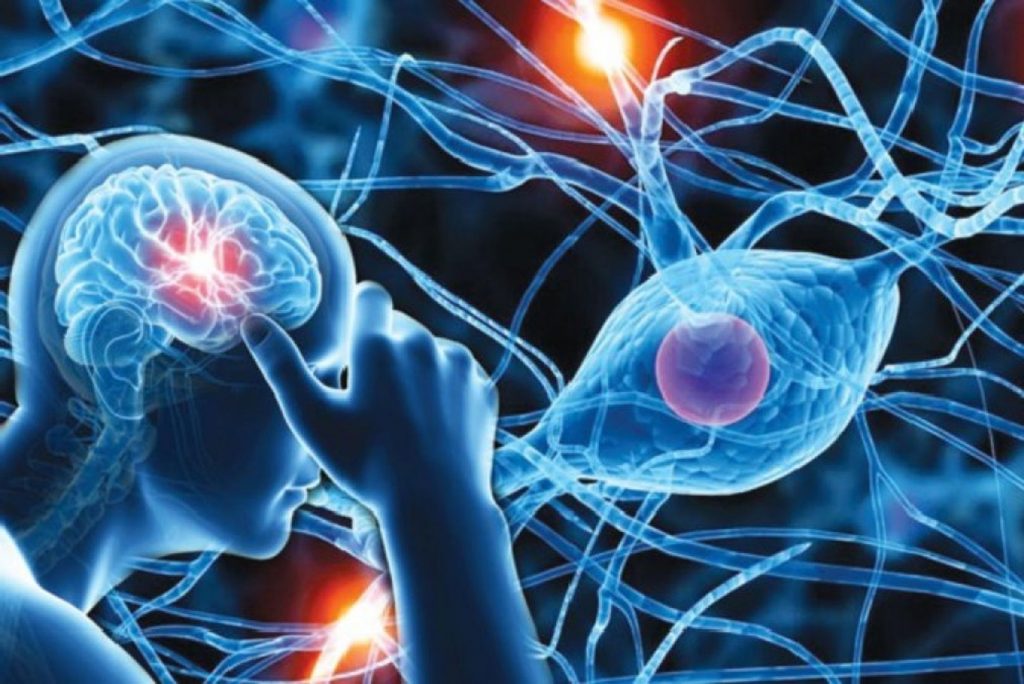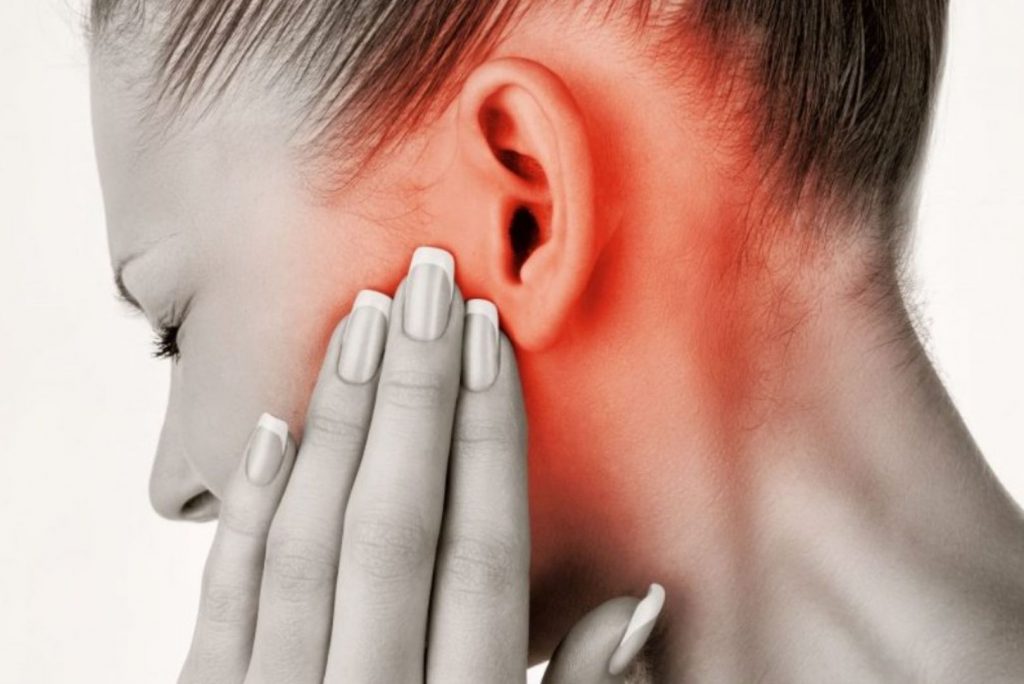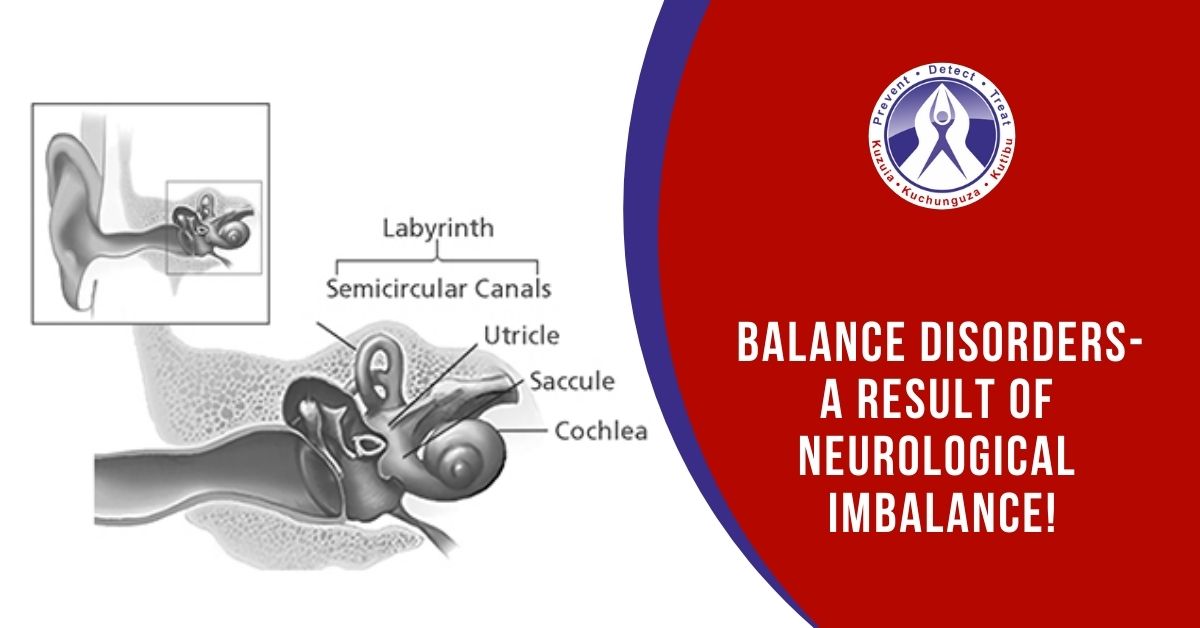Balance Disorders – A Result of Neurological Imbalance
1,441 viewsStatistics say that 40% of the older adults, one-third of the adults aged above 65 years, and half of those above 75 years of age suffer from balance disorders. In an attempt to educate the readers about the neurological aspect of these balance disorders, it is important to have a clear understanding of their individual meanings.
WHAT ARE BALANCE PROBLEMS!?

Each one of us might have encountered either someone known or experienced yourself, the feeling of dizziness. This could happen while watching something spinning or the feeling of falling at higher altitudes, sometimes, it also results in a sensation of staggering while walking. All these senses, when grown to an unbearable extent, are termed as balance problems. In a more sophisticated manner, balance disorders are conditions where a person feels unsteady and dizzy under some specific conditions. Examples of balance disorders are Benign Paroxysmal Positional Vertigo (BPPV), Vestibular neuritis and labyrinthitis, Vestibular migraine, Ménière’s disease, Cerebellar ataxia, Sensory ataxia, etc.
WHAT ARE NEUROLOGICAL DISORDERS?

Neurological disorders are defined as those that affect the brain as well as the nerves found throughout the human body and the spinal cord.
By now, you might now feel that there is definitely some connection between the two. Let us look at what those are!
WHAT CAUSES BALANCE PROBLEMS? (NEUROLOGICAL PERSPECTIVE)

Damage caused to your nervous system: These includes-
- Brain stroke decreases the blood flow in the body.
- Any sort of traumatic brain injury.
- Multiple sclerosis
- Parkinson’s disease
- Cerebellar diseases
- Acoustic neuromas and other brain tumors
Thus, this shows that any obstruction in the normal functioning of the brain can cause balance problems. In addition to this, there are many instances where trauma to the inner ear or head may result in imbalances:
- Infections may be viral or bacterial.
- Any disorder that affects the normal blood circulation to your head and ears.
- Migraine-associated dizziness.
- Traumatic inner ear dysfunction.
- Benign positional vertigo.
Let us now look at the science behind it: Balance in our body relies on signals from your brain from several organs and structures in your body, specifically your eyes, ears, and the muscles and touch sensors in your legs. Classifying it into 3 different categories, we have:
- We have pressure sensors in the neck, torso, leg joints, and feet that send information to the brain whenever we do any sort of activity like move, walk, turn, etc. Thus, we observe balance disorders whenever this flow of information is disrupted by either blood circulation or poor performance of other organs.
- The frontal section in the ear, also known as the labyrinth, is involved in the act of hearing. At its rear are semicircular canals, which affect balance. Connecting them, we have a vestibule which again impacts the function of balance in the body. Whenever we turn our heads swiftly, the liquid inside the semicircular canals moves the tiny hairs lining the cochlea, sending a message to the brain that movement has occurred and to act accordingly. As soon as the brain receives this message, it sends another signal to the target muscle and therefore movement arises. Now in the case of balance disorders caused by hearing impairments, this transmission of a message from the ears to the brain is hampered. As a result of which, the chain of communication breaks, and no signals are sent to the muscles to act, thus causing imbalances.
- The eyes are another carrier of signals to the brain. The light-sensitive cells, known as rods and cones, are nerve endings in the retina at the back of the eyes. The rods and cones send electrical signals to the brain through the optic nerve whenever we are exposed to any visual. After receiving signals, the brain interprets and forms an image. Our knowledge of depth and height of things comes from sight perception and thus proper functioning and relationship between eyes and brain ensure maintenance of balance.
Now that we have talked much about how major parts of the nervous system impact an individual’s balance, let us jump straight onto the identification of these symptoms.
SYMPTOMS OF BALANCE DISORDER

In the following cases, you might consider a visit to the doctor:
- Vertigo- Sense of motion or movement.
- Presyncope- Sense of faintness or light-headedness.
- Loss of balance, shaky legs, unsteadiness.
- Feeling of falling or might fall even when completely secure.
- Constant dizziness and a feeling of floating.
- Immediate visual changes cause blurriness.
- Confusion regarding movements.
Once identified, your doctor will advise you on certain lifestyle changes and medications to treat the imbalance. Let us have a glimpse of that as well:
HOW DO WE TREAT YOU?
Treatment for balance disorders is an appropriate mix of medications and lifestyle changes.
- Balance retraining exercises: Therapists are trained in balance problem designs which are customized as per the problems faced by the patients. These therapies train you to compensate for the imbalance, adapt to less balance and maintain physical activity.
- Positioning procedures: This procedure is specific to BPPV. Here, the therapist clears particles out of your inner ear and deposits them in a different area of your ear.
- Dietary changes followed by a healthy lifestyle: It completely depends on what kind of impairment you face. In case you suffer from migraines, the doctor might advise you to reduce the intake of certain foods. This includes salt, alcohol, caffeine, etc.
- Medications: For people whose disorder lasts for days, the doctor might put you on medications to relieve the unsteady feeling.
- Surgery: Surgery is not for all, but only in cases where the disorder has no cure or has increased. The doctor might recommend getting surgery done in Meniere’s disease or acoustic neuroma.
To sum everything up
Balance disorders are a result of faulty transmission to the nervous system. This disables the dissemination of any message to the muscle leading to imbalances in normal operations. Get yourself treated if any such symptoms are observed repeatedly. If neglected, there are chances of serious accidents that may cost a person their life. At Regency Medical Centre, our team is more than happy to assist you with our specialists. In case you want to get yourself assured of no such issue, book for an appointment now!


